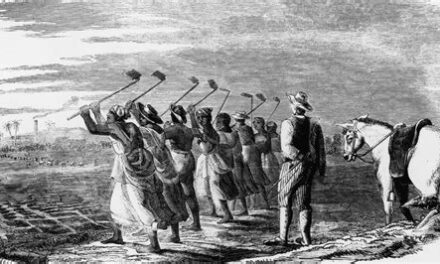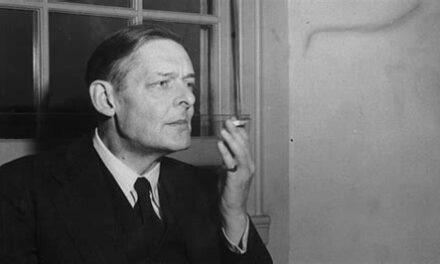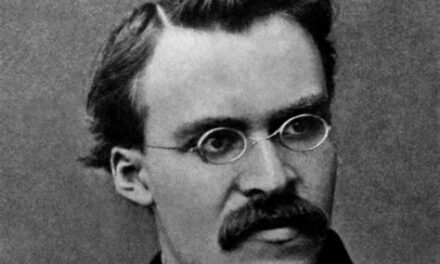Theresa Watson: Hello, brothers and sisters. Thank you for joining us today. I’m Theresa Watson with Priests for Life. I’m the executive manager. And I’m here with Father Frank Pavone to talk about his personal life and background. So thank you for being here, Father Pavone.
Fr. Frank Pavone: Theresa, it’s a pleasure. Glad to be talking about what the Lord has done in my life.
Theresa Watson: Yes, well, thank you for being willing to also share more about your life and your journey through your priesthood and your pro-life work. So our first question, I guess, is let’s go back to your teenage years when right before the beginning of your final year of high school, you became very involved in the church. You told us about your pastor and that he was quite a saintly man. Can you tell us more about how he guided you in your spiritual life?
Fr. Frank Pavone: Yes. As I had mentioned, I went to public schools, and, so, we went to church on Sundays, but I wasn’t really very religious beyond that. I was more into my studies. But Father Peter Rinaldi was our pastor at Corpus Christi Church in Port Chester, and widely regarded as a saint. Now I didn’t know that it was spiritual direction, as a term, but he was giving me spiritual direction. He would invite me to come and to talk with him.And, remember, he was a Salesian and the Salesian have a particular charism for ministering to the young, and they run schools and retreat centers. It’s a youth charism that they have. And so he knew how to how to guide me, and besides his own holiness, his Salesian charism was put into action and I benefited from that directly. So he would have me come in and we would sit, just like we’re sitting now, and we would talk. He would ask me how I was doing, and we would talk about my prayer life and whatnot. So he was a great encouragement.
Two things stand out among many memories. One, his – I can still see him sitting there, as you are with me now, and he said, “Remember, as the saints have said,” he said, “Let nothing ever, ever disturb you.” He said it just like that, and with his hands going like this. “Let nothing disturb you.” That is key gospel command. That is a bedrock of the spiritual life. St. Paul says, “Dismiss all anxiety from your minds.” Jesus, himself, says, “Let not your hearts be troubled.” Scripture repeats constantly, “Be not afraid.” This was a bedrock element of my spirituality from those teenage years. He instilled that in me. I never will forget the way he said it.And it’s so true, and we have to invoke that, all of us, no matter what’s going on in our personal lives. You know, as one of the Psalms says, “I will praise the Lord no matter what happens,” and it’s got to be, you know, no matter what happens in my own life, in my own mind and heart, with my own health, with my family, with my parish, with my country, with the world; no matter what happens, God is in charge. He knows what’s going on. He knows our needs better than we are. And you know what? He loves and cares for us more than we love and care for ourselves. So let nothing ever disturb you.
That was point number one. Then another time, he taught me a really great lesson. When I really started praying more, I mean, I jumped into it with both feet and head, and everything else. I just prayed a lot. And I loved to worship the Blessed Sacrament. So I would go into church, and the church was open most of the time, unfortunately, we don’t find that today as a norm, but the church was open most of the time. And I loved to sit in front of tabernacle and pray. Now, here I am, a high school senior. Okay.Father Rinaldi noticed me coming often besides going to daily mass every morning. I would be there praying in the afternoons in front of the Blessed Sacrament after school. He comes over to me one day as I’m sitting there focused on the Lord – and, by the way. what I started implementing in my life, and I know that some of our viewers do this as well and they find it very, very, very helpful, Archbishop Fulton Sheen always advocated for a daily holy hour. I started doing that when I was a teenager. A daily holy hour.
And he said that will make the difference in your spiritual life. And so I always, always try to implement that. In fact, I remember times there in my hometown of Port Chester, where with certain holidays, when the churches were in fact locked, sitting outside in my car, intent on the Blessed Sacrament inside the locked church to make the holy hour.
So Father Rinaldi saw me sitting there one afternoon. He comes over to me and he says, “Frank, it is so good that you come here to pray.” He said, “But make sure that you are not neglecting your duties to your family, your studies.”
And he said, “Make sure that you’re keeping everything in the proper balance,” he said, “Otherwise, if you were neglecting those things that you’re supposed to do,” and he wasn’t saying I was neglecting; he was just saying, “Be careful,” he said, “Because the Lord will come out of the tabernacle and chase you out of this church,” if you’re not fulfilling your duties,” he said. And it was a key lesson.
It’s a very Salesian lesson. Salesians of St. John Bosco, the will of God is where we find our holiness. That’s where we find our sanctity. We’re responding to God at every moment, at every moment, not just in doing religious things, not just when praying, but when serving, when carrying out our duties, when doing our homework, when helping our family. We’re responding to God in every moment, and it’s when we’re united with his will that we are becoming holy. And that was a beautiful lesson he taught me from early on.
Theresa Watson: Yes, that sounds amazing. It’s interesting. You know that God obviously put him in your life knowing what you were going to be doing.
Fr. Frank Pavone: I am amazed constantly, including at this very moment, it just dawns on me again, again, and again, how many saints I’ve known in my life. Saints. Saints. This man – I am absolutely convinced if his life is studied, he would be canonized. I have been blessed with saints all my life, and we’ll talk about some of the other ones I knew as well.
Theresa Watson: Sure. Sure. Well, another one of your mentors was Father Benedict Groeschel.
Fr. Frank Pavone: Another saint.
Theresa Watson: So tell us about your relationship with him and how he influenced you.
Fr. Frank Pavone: Well, God really put him into my life right around the same time as we’re talking about now, my senior year in high school. You know why? Because his office, his Trinity Retreat House — he was in charge of spiritual development for the New York Archdiocese –you know where it was located? It was located 15 minutes down the road from where I lived, from our home, our family home in Port Chester! He was over in Larchmont.
And as a high school senior, I first met him because another friend of mine in my class — I think we might have mentioned it in the last interview, David, who just since went on to be a medical doctor — he and I were at the top of our class academically, and we were also both experiencing this deep and intense spiritual revival in our senior year. And we were both, by the way, involved in the Catholic Charismatic Renewal. I’m sure many of our listeners know and had experience in the charismatic renewal. That very much shaped my spirituality, too.
But it was during those days that David said let’s go listen to Father Benedict over there at Larchmont because he’s giving these evening talks that he would invite anybody and everybody to come. And I first met him as a teenager. And then, of course, I entered the seminary, I entered the Salesian seminary, and he came in there to give some talks. So I knew him a little bit from afar. But then, eventually, I went to Dunwoodie, the theological seminary for the New York Archdiocese, and he was on the faculty and he was one of the spiritual directors.
And I got to know him really, really well. In fact, we went together on a trip to the Holy Land. And I was amazed because there we were in the Holy Land, this was in, oh, maybe, my first or second, I think it was at the end of my first year of theology. And he is bringing us to all these holy sites, and a lot of the Franciscan priests were in charge of the sites, and some of them under the guidance of the Orthodox Church. But everywhere we went in the Holy Land, the priests knew him. They knew him. They referenced him. “Oh, Father Benedict.” And it was like open doors wherever we went because of Father Benedict.
And I remember on that trip, he brought us into the Sepulcher, the tomb of Christ. And you can go in there, and a few people at a time can fit inside of the tomb where his body was lain and where he rose from the dead. We went there at night. Now, usually, they would bring a few people in, you know, and you spend a couple quick minutes, and then they usher you out because the rest of the crowd that’s lined up has to come in.
Well, we got there at just the right time. It was the end of the day. I’ll never forget this, I got to spend ten minutes with my forehead down like this, I’m kneeling, and down like this, with my forehead on the slab of stone where the body of Christ was placed and from which he rose from the dead. And I just prayed so intensely at that moment. And this was my prayer: “Lord, let everyone in the world know the truth that Christ is risen.” And there at that place of his resurrection, I was able to say that prayer.
And these are the kind of moments we had with Father Benedict. I remember when he and I were walking in the Judean Desert, and he had to slow down because it was a slight incline. And he and I were just chatting together for a while, and he said, “Frank, look up there.” And I looked way up on the side. We’re walking in-between all these mountains. I look up, and there was a little hole in the side of the mountain. And he said, “There’s a hermit that lives up there.” He knew there was this hermit – he said, “A hermit lives up there.”
And every day, they have some kind of device, some kind of pulley, where they send him his food. I could still see the hole in the mountain. Making reparation for the world. It reminds me the quote of Thomas Merton, “The world is held together by a few contemplatives,” [laughter], while the rest of us are going crazy.
Father Benedict vested in me at my ordination. Every priest, when he gets ordained, and is going to put on the chasuble for the first time, can choose a priest who has been a particular friend or mentor of his in life. And he is there at the ordination ceremony and when the time comes, he puts that chasuble over your head.
I had Father Benedict do it, and he did it for me. And then, of course, we remained good friends the rest of his life, and he blessed and helped us, guided me in our work of Priests for Life. In fact, we even have a little video that we show every once in a while where he’s encouraging people to support us. And he was a big influence in my life.
Theresa Watson: And some life-changing experiences you had. My goodness. So a third key mentor was Cardinal John O’Connor, and he’s near and dear to my heart being a fellow New Yorker. And you told us a little bit already about his influence on you, but can you just tell us a little bit more, especially if you can elaborate on how he allowed you to do your pro-life ministry full time.
Fr. Frank Pavone: He was on fire for the unborn. He kept emphasizing, “This is the number one issue.” And I might have mentioned in my last interview that he got flak even from some of the other bishops that didn’t – now he was a cardinal of the church, and arguably the key church leader in the United States, and he was getting flak from some of his brother bishops. And I say this only because he said it publicly, himself, that, “Oh, you’re putting too much emphasis on this abortion issue.” Well, he couldn’t care less about the criticism that he got.
And I think that’s one of the things he taught me. He said that when you know you’re doing what’s right, when you know you’re doing what God wants you to do and what the church blesses, you don’t have to care about anybody who’s criticizing you.
But Cardinal O’Connor taught me — and I heard him preach constantly on this issue — I noticed how he combined, and I have consciously, deliberately, carefully over these decades of pro-life work, have striven to incorporate this example of his, how he was able to combine, really perfectly, the fierce advocacy for the rights of the unborn, with the most tender compassion for those who have had abortions.
And one of the key questions he asked me when I – I went to him. He didn’t ask me to become director of Priests for Life. I went to him with this burning desire when I realized after doing a few years of parish work, which I liked very much, but I realized I was being called to devote myself full-time to fighting abortion. So I went to him because he was my bishop, and I said, “I’d like to do pro-life work full-time.” And I even, in my letter to him, said, “I’d even like to go so far as to spend time directly rescuing babies.”
And what I meant — there was, at that time, the operation – this was in the early nineties — I was ordained in ‘88, and the rescue movement was very, very prominent. So people were directly going and blockading the doorways of the abortion facilities to save these babies. And I expressed to him very openly, I said, “I want to do educational work, pastoral work, and I even want to be able to devote myself to, you know, laying by my body down in front of these abortion facilities to rescue these babies.”
And one of – it’s just about the only question he asked me was about the healing of those who have had abortions. He wanted to make sure that, in my activism, I also had that compassionate heart. And, of course, I told him right from the start, that was always one of my key priorities — to proclaim that the Gospel of life is the Gospel of mercy, that we who oppose abortion, never oppose or reject those who have abortions. We want to welcome them back. Even the abortionist — you know, they’re not the enemy. They’re captive to the enemy.
So when he saw that that was my heart, as well, and, of course, he, himself, had fanned the flames of that with his example and his words, he was most gracious and eager to let me have permission to do this work full-time. And it wasn’t that he didn’t want or need priests in his diocese. But he had a spirituality where he said every day, “Lord, let me not prevent anyone from doing some good today.” And I think that’s a prayer that all of us have to be able to say, especially those of us in spiritual leadership. “Lord, let me not prevent anyone from doing some good today.”
A bishop is responsible not just for his diocese; bishops are responsible for the governance and nurturing of the entire church worldwide. They exercise their ministry in union with the Pope, and all the bishops help to serve the whole church. And Cardinal O’Connor had a sense of this, which enabled him to allow many priests, myself included, to do work that was beyond the boundaries of the diocese.
- Priests for Life helped the Archdiocese of New York, but it also helped people around the country and around the world, as it still does today. And because he was aware that part of his responsibility was indeed for the universal church, he was able to allow me to do that.















Thank you Fr Frank for your insight into these saints lives and how they influenced your life.
Very inspirational interview thank you!
Thank you for sharing your history.
I look forward to the new schedule of programs you have announced this evening.
I know I have to sign up..just not sure where to do that.